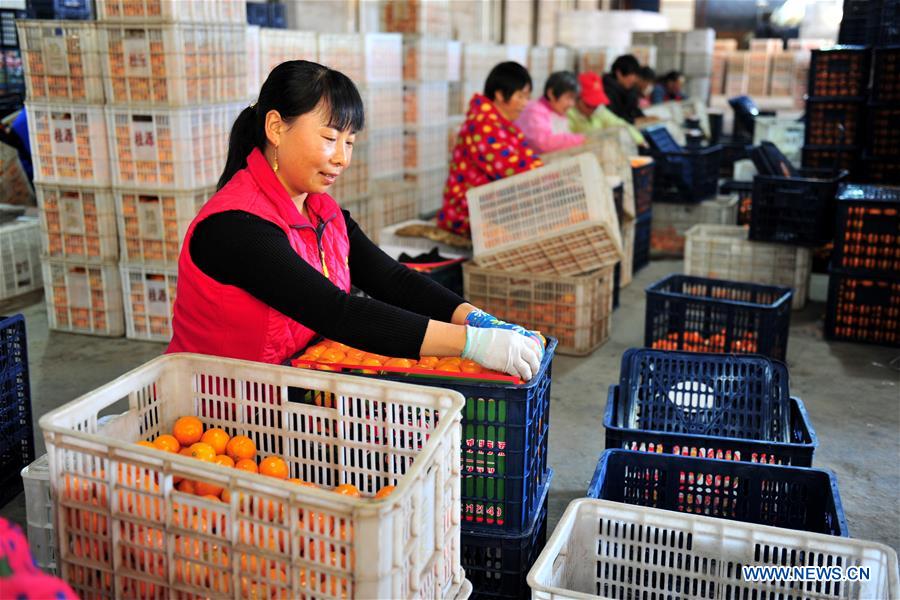
Workers package citrus in Guanzhuang Village of Yiling District of Yichang City, central China's Hubei Province, Nov. 23, 2018. (Photo: Xinhua)
New York (People’s Daily) – Millions of jobs in the Asia-Pacific region have been put at risk by conflicts over trade, despite a recent agreement not to escalate tit-for-tat tariffs by the United States and China, according to a new United Nations report.
The 2018 Asia-Pacific Trade and Investment report, issued by the UN’s development arm, Economic and Social Commission for Asia and the Pacific (ESCAP), suggests that an escalating "tariff war" and resulting drop in confidence next year could cut nearly $400 billion from the global economy and drive down regional GDP by $117 billion.
"As production shifts take place and resources are reallocated across sectors and borders due to the trade conflicts, tens of millions of workers may see their jobs displaced and be forced to seek new employment," said ESCAP chief Mia Mikic.
The report noted trade tensions have already had a major impact, resulting in disruptions to existing supply chains and dampening investment. Trade growth slowed in the second half of 2018, and foreign direct investment (FDI) flows to the region are also expected to continue on a downward trend next year, following a 4 per cent drop overall this year.
In such a scenario, regional investment will be key to creating new economic opportunities, said Ms. Mikic, adding that "complementary policies" such as labor, education and retraining, and social protection measures must be high on the policymaking agenda.
This is critical for ensuring progress on implementing sustainable development goals (SDG), she said.
ESCAP has also called on countries to take full advantage of all existing initiatives to strengthen regional cooperation, including a new UN treaty on digitalizing trade procedures and enabling cross-border paperless trade.
The report has underscored that neither China nor the US can win a "trade war", explaining that "both will see significant economic losses from continuing conflict."
It also finds that implementation of mega-regional trade agreements such as the Regional Comprehensive Economic Partnership, among the Association of South-East Asian Nations (ASEAN) and its six partners – Australia, China, India, Japan, New Zealand and the Republic of Korea – could offset much of the economic losses from trade tensions.
The 2018 report estimates that implementation of such agreements could boost exports by 1.3 to 2.9 per cent and add 3.5 to 12.5 million jobs in the Asia-Pacific.


